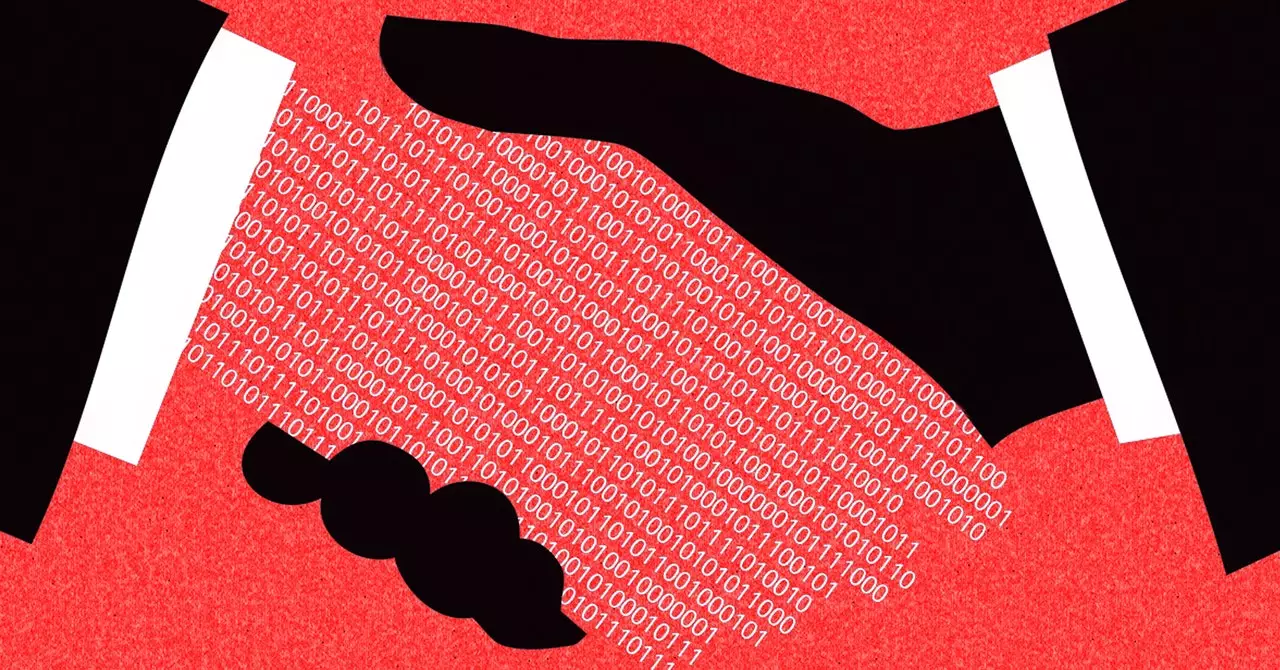In an era where artificial intelligence (AI) is at the forefront of technological advancement, the intersection of AI and content creation has not only sparked debate but has also opened fresh avenues for monetization. With AI companies frequently utilizing vast amounts of online content—especially from platforms like YouTube—without permission, a novel approach is emerging that seeks to formalize this interaction through licensing. This is encapsulated in the concept of “License to Scrape,” an initiative driven by a startup named Calliope Networks, which aims to empower content creators while enabling AI development in a more ethical manner.
Historically, AI models have thrived on the unregulated scraping of content available on the web; however, this paradigm is gradually shifting. Dave Davis, the CEO of Calliope Networks, highlights the clear demand from AI companies for YouTube content. He argues that legal and straightforward processes for obtaining licenses can benefit both creators and developers alike. By establishing a legitimate framework for content licensing, creators are given an opportunity to protect their work while also profiting from its usage in AI training. This transition from permissionless scraping to a structured licensing model suggests a maturation of the AI industry, reflecting a growing awareness of the need for intellectual property rights respect.
Emerging from traditional media licensing, Calliope Networks brings a refreshing perspective to the often chaotic relationship between AI and content creation. Leveraging his background at the Motion Picture Licensing Corporation, Davis has designed a plan that operates similarly to existing licensing frameworks in the music industry, such as those employed by organizations like BMI and ASCAP. By negotiating blanket licenses on behalf of a group of creators, Calliope aims to streamline the licensing process and generate sufficient content volume, thus attracting interest from AI developers.
Davis’s vision is clear: create a contractual relationship between YouTube creators and Calliope, allowing the startup to sublicense content for use in training generative AI models. However, the challenge lies in gathering a critical mass of content providers. The ambition is to represent tens of thousands of hours of video content, highlighting the intrinsic value of collective effort among creators in a market that rewards volume and variety.
One of the most significant thrusts of the License to Scrape initiative is its promise of collaboration among creators. Traditional models often pit content creators against the platforms that host their work, leading to tensions and misunderstandings about rights and compensation. This new model, however, advocates for a more collective approach. By banding together, creators can ensure that their content is recognized and compensated fairly in the rapidly evolving AI space. This collaborative ethos could become a mainstay in how creators approach their relationship with AI companies moving forward.
Calliope’s proactive steps to engage influencer marketing agencies, such as Viral Nation, underscore a strategic effort to gather momentum. With growing interest from creators—illustrated by positive feedback from influential figures in the content space—there’s optimism surrounding the potential for widespread participation among YouTubers. The allure of generating revenue from AI companies who seek to utilize their content presents an appealing opportunity for many creators navigating the challenging landscape of content monetization.
The prospect of establishing a sustainable licensing framework for AI development represents a pivotal moment in the industry. Calliope Networks’ initiative could serve as a model for future endeavors, paving the way for more structured partnerships between AI companies and content creators across multiple digital platforms. Should this initiative gain traction, it may redefine how AI development is approached—emphasizing cooperation over exploitation.
As AI continues to evolve and permeate various aspects of daily life, content creators will need to navigate this burgeoning field thoughtfully. The success of Calliope’s License to Scrape will depend heavily on its ability to attract a robust participant base and prove its worth to both creators and AI developers. If successful, this model could empower creators to reclaim control over their intellectual properties while ensuring that they can monetize the multimedia assets they have invested time and resources into developing.
The “License to Scrape” initiative by Calliope Networks heralds a significant shift in the AI-content dynamic, one that promises a future where creators can thrive alongside advancing technologies, all within a framework that upholds their rights and interests.


Leave a Reply